HHS awards $1 million to Alabama community health centers
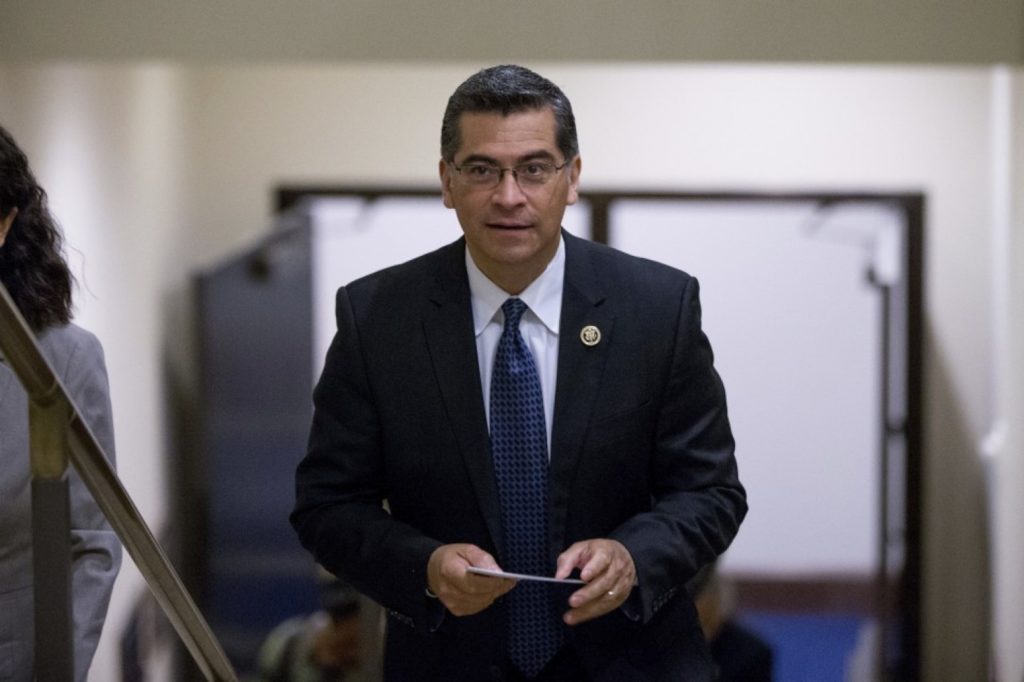
Today, the U.S. Department of Health and Human Services (HHS), through the Health Resources and Services Administration (HRSA), awarded $1,048,000 in American Rescue Plan funding to 16 community health centers in Alabama to advance health equity through better data collection and reporting. On Friday, August 5, President Joe Biden issued a proclamation on National Health Center Week to recognize the vital role health centers play in safeguarding the well-being of Americans. These awards will help strengthen efforts to eliminate inequities in COVID-19 care and outcomes within communities of color and other underserved populations. The nearly $90 million in funding also builds on the $7.6 billion invested from the American Rescue Plan to strengthen the health center workforce, renovate facilities, and equip them with essential COVID-19 medical supplies over the past year. “We have prioritized advancing equity in our COVID-19 response and throughout all of our work,” said HHS Secretary Xavier Becerra. “Community health centers have played a pivotal role in the nation’s COVID-19 response, and now serve more than 30 million people across the country. Today’s investments will help ensure that all patients have equitable access to the high-quality health care they deserve.” HRSA’s initiative is designed to enable health centers to have better data on both patient health status and social determinants of health. With better information, programs can tailor their efforts to improve health outcomes and advance health equity by more precisely targeting the needs of specific communities or patients, particularly as part of the public health emergency response. “Time and again, the COVID pandemic has demonstrated the vital role of trusted community leaders in delivering health care services,” said HRSA Administrator Carole Johnson. “Health centers are that trusted resource in the highest risk and hardest hit communities in the country. As we recognize the heroic work of the frontline health care workers who make health centers what they are, today we also are investing in the tools they need to help them continue to best serve their communities.” The nearly 1,400 HRSA-funded community health centers in the U.S. serve as a national source of primary care in underserved communities. They are community-based and patient-directed organizations that deliver affordable, accessible, and high-quality medical, dental, and behavioral health services to more than 30 million patients each year, with specific initiatives intended to reach people experiencing homelessness, agricultural workers, and residents of public housing. The following centers will receive funding in Alabama. ALABAMA REGIONAL MEDICAL SERVICES BIRMINGHAM AL $65,500 ALETHEIA HOUSE, INC. BIRMINGHAM AL $65,500 CHRIST HEALTH CENTER, INC. BIRMINGHAM AL $65,500 CAHABA MEDICAL CARE FOUNDATION CENTREVILLE AL $65,500 QUALITY OF LIFE HEALTH SERVICES INC GADSDEN AL $65,500 AIDS ACTION COALITION OF HUNTSVILLE HUNTSVILLE AL $65,500 CENTRAL NORTH ALABAMA HEALTH SERVICES, INC. HUNTSVILLE AL $65,500 BAYOU LA BATRE AREA HEALTH DEVELOPMENT BOARD, INC IRVINGTON AL $65,500 ALTAPOINTE HEALTH SYSTEMS, INC. MOBILE AL $65,500 FRANKLIN PRIMARY HEALTH CENTER, INC. MOBILE AL $65,500 MOBILE COUNTY BOARD OF HEALTH MOBILE AL $65,500 CAPSTONE RURAL HEALTH CENTER, THE PARRISH AL $65,500 NORTHEAST ALABAMA HEALTH SERVICES, INC. SCOTTSBORO AL $65,500 RURAL HEALTH MEDICAL PROGRAM, INC. SELMA AL $65,500 SOUTHEAST ALABAMA RURAL HEALTH ASSOCIATES TROY AL $65,500 Health Center Program Look-Alikes Organization City State Amount HAPPI HEALTH HUNTSVILLE AL $65,500
Katie Britt: Human trafficking is modern-day slavery, and it’s time to end it
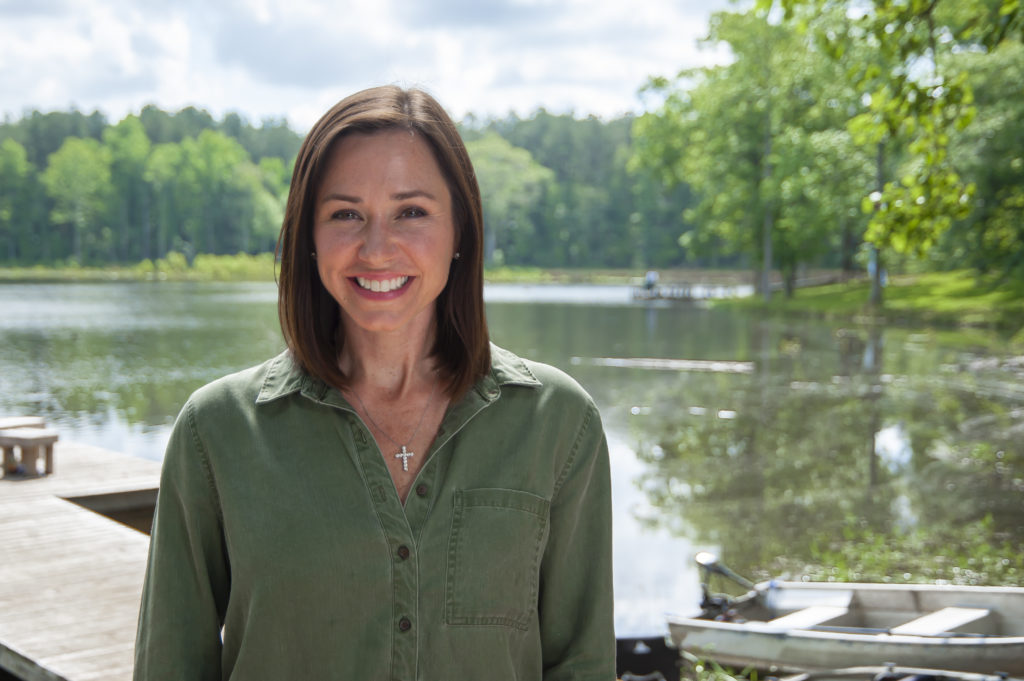
While the spike in violent crime nationwide last year has rightfully grabbed headlines, one heinous crime wave continues to go relatively under the radar. Human trafficking, already the second-largest criminal industry in the world at $32 billion annually, is also the fastest-growing. While this might seem like a distant problem to our state, the reality is that human trafficking is hitting Alabama communities and some of the most vulnerable among us every day. Human trafficking cases have been reported all across our state, from Montgomery and Birmingham to Fort Payne, Huntsville, Albertville, and Guntersville to Dothan and Mobile. The Alabama Human Trafficking Task Force, which brings together public and private sector stakeholders to address the critical issue in the Yellowhammer State, hosted its 8th annual Human Trafficking Summit this past Friday. This is a prime example of the type of awareness and education initiatives that are needed to bring attention, resources, and solutions to the professionals that have the greatest opportunity to help end human trafficking in Alabama, as well as the general public – who can also play a significant role in spotting and reporting signs of human trafficking. As defined by the Trafficking Victims Protection Act of 2000, human trafficking – referred to as Modern Day Slavery – can take the form of both labor trafficking and sex trafficking. Traffickers gain complete control of their victims through coercion, force, or fraud. The statistics behind this barbaric criminal enterprise are difficult to think about yet important to understand. While 80% of human trafficking victims are female, males can certainly be victims, too. Additionally, members of the LGBTQ community are specifically targeted by traffickers. While many adults are victims of trafficking, the average age of entry into sex trafficking is 11-14 years for victims. Of the estimated 27 million slaves globally, approximately half are children. And two children are trafficked into sexual exploitation every single minute. Yes, you read that right. The U.S. Department of Health and Human Services details that the top sex trafficking venues include hotels, motels, truck stops, escort services, and online advertising-based platforms. For labor trafficking, the top venues reportedly include traveling sales crews, restaurant and hospitality services, domestic work, begging rings, and health and beauty services. This is a worldwide scourge, and it’s spreading across Alabama, as well. In fact, the I-20 corridor between Birmingham and Atlanta has the unenviable title of being the “Sex Trafficking Superhighway” and “America’s number one road for human sex trafficking.” While a project by The University of Alabama’s College of Social Work put the number of reported Alabama human trafficking cases to law enforcement and social workers at about 1,200 for 2017, estimates project that the annual number of victims was probably 10 times that across the state. As of 2019, the Global Slavery Index estimated that there are over 6,000 victims of human trafficking on any given day in Alabama. The brazenness and number of online ads by human traffickers in Alabama is even more startling. The College of Social Work at UA reportedly put the number of digital human trafficking ads at 641,000 in 2017 alone in Alabama. A large part of the problem with this growing crisis in the modern age is Big Tech’s unwillingness or inability to crack down on the advertisements. Meta, parent company of Facebook, just last week announced that it has reaffirmed its existing policy of allowing solicitation for human smuggling on its platforms. This effectively allows human traffickers to identify and lure especially susceptible victims. As Alabama’s next Senator, I’ll fight to end human trafficking across Alabama and our nation, and I will always support the victims of this inhumane cruelty. In the Senate, I’ll work tirelessly to ensure our incredible law enforcement and other first responders have the resources and training needed to spot trafficking and address it in their local communities. In addition to awareness and education initiatives, one major step we can and must make on the federal level is to secure our porous southern border, which is enabling and encouraging human traffickers right now. I will also push to strengthen efforts to identify, prevent, and address human trafficking in our supply chains, as well as build capacity to prevent the importation of goods produced with forced labor from places like China. We are grateful for the law enforcement officers, truckers, educators, medical personnel, and other professionals combatting trafficking in our state. And we certainly appreciate the nonprofit workers and volunteers who dedicate their time to fighting this battle. There is a long road to go to ending this conscience-shocking criminal industry. Together, we will protect the most vulnerable Alabamians and make our communities safer and stronger for our children and our children’s children. Katie Britt is a Christian conservative Republican candidate to serve as the next U.S. Senator for Alabama. An Enterprise native, Katie resides in Montgomery with her husband, Wesley, and their two children, Bennett and Ridgeway.
$47 million in grants awarded to assist low-income families with utility costs

The Alabama Department of Economic and Community Affairs (ADECA) announced that Gov. Kay Ivey has awarded grants totaling nearly $47 million to help low-income households with utility costs during the cold winter and hot summer months. The grants will enable 18 community service agencies to provide emergency funding to help low-income families heat and cool their homes in 2022. “Alabama’s coldest and hottest times of the year hit many low-income residents particularly hard when they can struggle to pay their utility bills,” Gov. Ivey said. “These grants will provide extra funding to assist in lowering the costs for many of them so that they can stay warm in the winter and cool in the summer.” ADECA will administer the grants from funds made available by the U.S. Department of Health and Human Services. ADECA administers an array of programs supporting law enforcement and traffic safety, economic development, energy conservation, water resource management, and recreation development. “ADECA stands with Gov. Ivey in supporting those who need help most during our hottest and coldest months,” ADECA Director Kenneth Boswell said. “These partnerships with local community agencies ensure that those who truly need assistance will receive emergency help with heating and cooling their homes.” Below is a list of each grant, the recipient agency, counties served, and the agency telephone number: $1.34 million to Community Action Agency of Northwest Alabama Inc. (Colbert, Franklin and Lauderdale) 256-766-4330 $2.46 million to Community Action Partnership of Middle Alabama Inc. (Autauga, Chilton, Elmore and Shelby) 205-755-1204 $1.24 million to Community Action Committee Inc. of Chambers-Tallapoosa-Coosa (Chambers, Coosa and Tallapoosa) 256-825-4287 $1.39 million to Alabama Council on Human Relations Inc. (Lee) 334-821-8336 $3.62 million to Community Action Partnership of Huntsville-Madison and Limestone Counties Inc. (Madison and Limestone) 256-851-9800 $5.12 million to Mobile Community Action Inc. (Mobile and Washington) 251-457-5700 $2.57 million to Montgomery Community Action Committee and Community Development Corporation Inc. (Montgomery) 334-263-3474 $3.22 million to Community Action Partnership of North Alabama Inc. (Cullman, Lawrence, Marion, Morgan and Winston) 256-355-7843 $3.9 million to Community Action Agency of Northeast Alabama Inc. (Blount, Cherokee, DeKalb, Jackson, Marshall and St. Clair) 256-638-4430 $3.12 million to Organized Community Action Program Inc. (Bullock, Butler, Covington, Crenshaw, Dale, Lowndes and Pike) 334-566-1712 $3.31 million to Community Action Agency of South Alabama (Baldwin, Clarke, Conecuh, Escambia, Marengo, Monroe and Wilcox) 251-626-2646 $2.28 million to Community Action Agency of Talladega, Clay, Randolph, Calhoun and Cleburne (Calhoun, Clay, Cleburne, Randolph and Talladega) 256-362-6611 $5.97 million to Community Service Programs of West Alabama Inc. (Bibb, Choctaw, Dallas, Fayette, Greene, Hale, Lamar, Perry, Sumter and Tuscaloosa) 205-752-5429 $1 million to Walker County Community Action Agency Inc. (Walker County) 205-221-4010 $3.06 million to Southeast Alabama Community Action Partnership Inc. (Barbour, Coffee, Geneva, Henry and Houston) 334-347-0881 $510,922 to Pickens County Community Action Committee and Community Development Corporation Inc. (Pickens) 205-367-1283 $1.2 million to Macon-Russell Community Action Agency Inc. (Macon and Russell) 334-727-6100 $1.47 million to Community Action of Etowah County Inc. (Etowah) 256-546-9271
Republicans push for greater access to COVID therapeutics
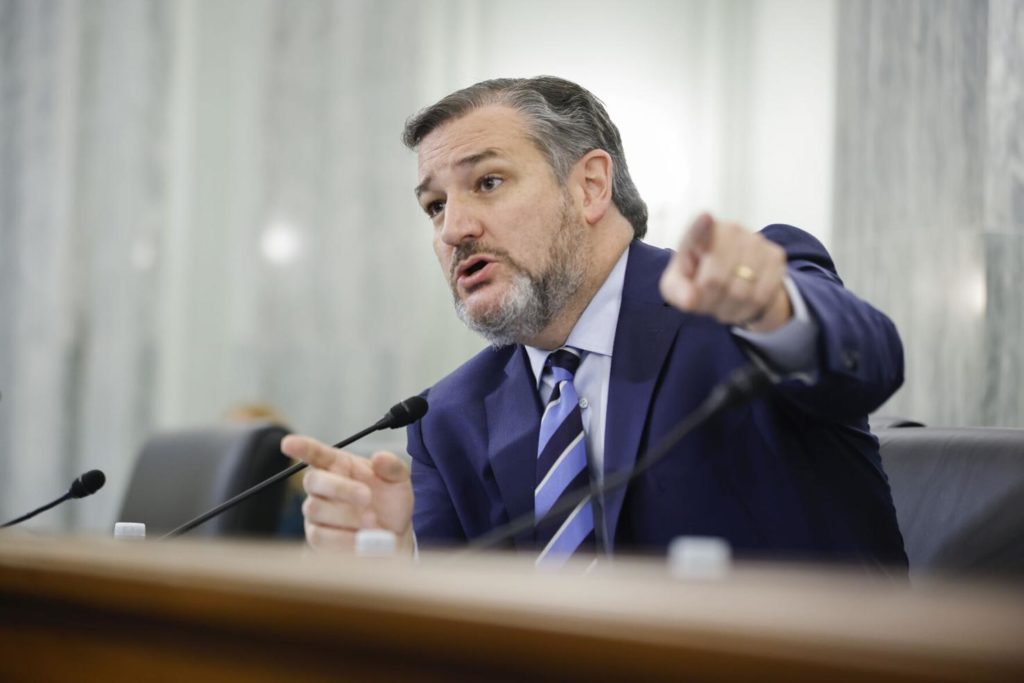
Republicans are pushing for greater access to monoclonal antibody treatments for COVID-19 after the federal government took over the distribution of such drugs last year. U.S. Sen. Ted Cruz, R-Texas, filed Senate Bill 3440 to prohibit the federal government from limiting state access to monoclonal antibody treatments. “One of the things we’ve learned during this pandemic is that monoclonal antibodies can have a very effective therapeutic effect in combatting COVID-19 infections,” Cruz said in a statement. “The Biden administration responded to these encouraging results by rationing and limiting the ability of people to access monoclonal antibodies and stopping states like my home state of Texas from ordering the treatments directly. This federal takeover is an abuse of power that denies people lifesaving medication.” The U.S. Department of Health and Human Services’ Office of the Assistant Secretary for Preparedness and Response announced an update to the distribution of such therapeutic treatments on Sept. 3, 2021, as demand increased. Ten days later, the Assistant Secretary for Preparedness and Response said the agency was taking control of the supply of some monoclonal antibody treatments, and it would provide weekly distributions for U.S. states and territories. Before that, state and health care facilities were able to order directly from AmerisourceBergen, the distributor, without limits. Florida Gov. Ron DeSantis, a Republican, also has been critical of the federal government’s policies regarding monoclonal antibodies after the state made such treatments a priority. “Prior to the federal government takeover of the monoclonal market, Florida successfully distributed approximately 30,000 doses per week when we managed our own supply,” DeSantis said in a statement. “The state has more than $800 million available to quickly deploy monoclonal antibody treatments throughout the state, and the only thing holding us back is the insufficient supply of treatment from the federal government.” Cruz’s bill would also allow states to use federal COVID-19 relief funds to buy monoclonal antibody treatments. A similar bill, introduced last summer, has gained 23 co-sponsors in the U.S. House. In September 2021, Florida’s U.S. Sens. Marco Rubio and Rick Scott said the Biden administration’s actions were “vindictive, politically motivated.” They also said the Department of Health and Human Services had no business rationing supply of monoclonal antibody treatments to places where demand is high. Rubio and Scott joined fellow Republican Sens. Roger Marshall, Kansas; Kevin Cramer, North Dakota; Marsha Blackburn, Tennessee; Mike Braun, Indiana; and Tommy Tuberville, Alabama; in introducing the Treatment Restoration for Emergency Antibody Therapeutics (TREAT) Act. The proposed Treat Act would prohibit the DHHS from restricting hospitals and other healthcare providers from ordering monoclonal antibody treatments directly from manufacturers to meet local demand. The U.S. Department of Health and Human Services didn’t immediately respond to a request for comment on Wednesday. Republished with the permission of The Center Square.
AG Steve Marshall files lawsuit to block Head Start vaccine mandate
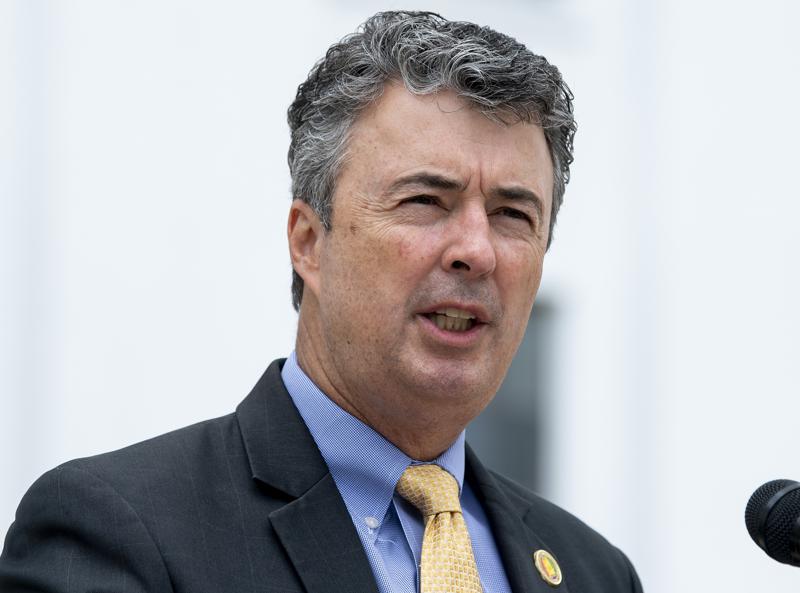
Attorney General Steve Marshall joined 22 other attorneys general and filed a lawsuit to block the Biden administration’s Head Start mandate for program employees to vaccinate against COVID, and for pre-school pupils to wear face masks, or risk losing all federal funding. The lawsuit argues that the mandate conflicts with Alabama’s vaccine passport law and that the U.S. Department of Health and Human Services doesn’t have the legal authority to impose the mandate. The lawsuit was filed in the Western District of Louisiana. Attorney General Marshall joined with Louisiana Attorney General Jeff Landry to bring this action, along with his colleagues from Alaska, Arizona, Arkansas, Florida, Georgia, Indiana, Iowa, Kansas, Kentucky, Mississippi, Missouri, Montana, Nebraska, North Dakota, Ohio, Oklahoma, South Carolina, South Dakota, Utah, West Virginia, and Wyoming. The mandate requires all personnel to be “fully vaccinated” and wear masks at all times, while also requiring students ages two years and older to wear masks. Two of Alabama’s state agencies—the Alabama Department of Human Resources and the Alabama Department of Early Childhood Education—would be affected by the mandate, as would all of Alabama’s Head Start teachers, staff, volunteers, and students. “The Biden administration clearly has no plans to back down from its errant pursuit of nationwide vaccination,” Marshall stated. “Likewise, the State of Alabama has no plans to back down from its righteous pursuit of nationwide injunctions.” Marshall added, “The victims of these mandates will not be ‘the unvaccinated,’ as President Biden would like you to believe. Rather, the harm will be felt by the rural pre-school children who will be left with no place to go if their centers are shut down. A program that the federal government created is at risk of being destroyed by those who claim to care most about its participants.”
Members of Congress press HHS Secretary to release more COVID-19 monoclonal antibody treatment to Alabama

Congressmen Mo Brooks, Barry Moore, Gary Palmer, and Mike Rogers sent a letter to U.S. Department of Health and Human Services Secretary Xavier Becerra voicing concerns over the Biden Administration’s distribution of monoclonal antibody treatments available to Alabama. The U.S. Department of Health and Human Service (HHS) recently halted treatment expansion plans and imposing limitations on the state’s allocation of monoclonal antibodies, reported Al.com. In September, the Medical Association of the State of Alabama also voiced their concerns with the new approach to allocating monoclonal antibodies. HHS changed the distribution method to make sure monoclonal antibody treatment is distributed equitably. Prior to the change, almost 70 percent of the monoclonal antibody supply in the U.S. was being used by just seven southern states: Alabama, Florida, Texas, Tennessee, Mississippi, Georgia, and Louisiana. These states also have some of the lowest vaccination rates. Senator Tommy Tuberville introduced legislation last week that would block the HHS policy limiting monoclonal antibody treatments. The letter states, “HHS’s change appears to have caused Alabama to experience a significant drop in mAb dose availability, thus unnecessarily putting lives at risk. Further, it appears many healthcare providers and clinics have struggled with anticipating shipments, resulting in patients being unable to receive the mAb therapy. “We ask HHS to clarify if the allocation formula will reduce the number of mAb doses allocated to states based on a state’s ability to properly report to HHS how many mAb’s were used. “Lastly, we request an explanation of why there has been such a lack of clarity by HHS on when treatments will become available.” Brooks stated in a press release, “According to University of Alabama in Birmingham researchers, monoclonal antibody (“mAb”) therapy reduces risk of hospitalization by 70% in high-risk unvaccinated persons. But, the Biden Administration is throttling Alabama’s supply of mAb treatments according to the Alabama Department of Public Health. The signers of this letter want answers from the Biden Administration about why they’re reducing the number of lifesaving treatments available to Alabamians.” Rep. Moore commented, “This allocation change to the supply of monoclonals in the midst of a public health emergency delayed potentially life-saving treatments to many Alabamians. The federal government implemented this change at a time when many Alabama hospitals were in the midst of a crisis from a rise in the delta variant. Adding even more government red tape to our hospitals at a time like this is inexcusable. This administration needs to stop playing politics when there are lives at stake.”
Alabama sees antibody shipments decline
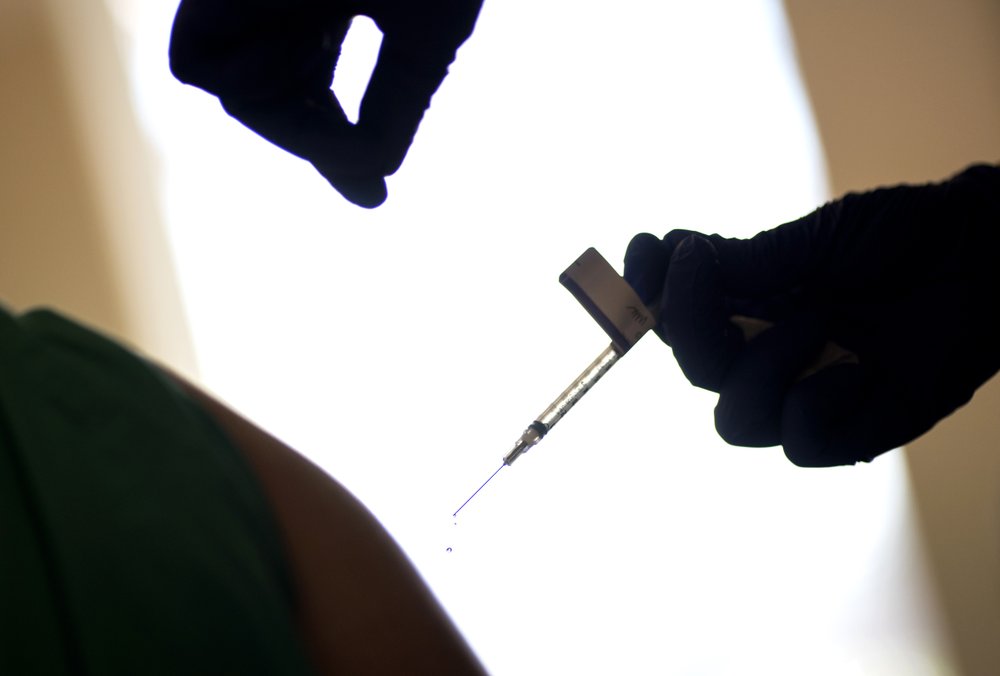
Alabama saw its number of available monoclonal antibody doses fall as federal officials try to ration the limited resource, but low-vaccination Southern states continued to receive some of the largest allocations. Alabama this week will receive 6,576 patient courses of the treatment used to prevent severe disease in a person with COVID-19, according to the Alabama Department of Public Health. That is down from 8,030 last week. Federal officials are using a formula — that includes case numbers, hospitalizations, and usage of available doses — to decide how many doses each state will get as they ration the treatments in response to a national shortage. “It has fallen off a little bit. I think the part we don’t know for sure is how much of this is due to the fact that are case numbers are going down a little bit, which they are, or how much is due to just lack of reporting of utilization which you get dinged for,” State Health Officer Scott Harris said Wednesday. Antibody treatment is a highly effective therapy that can blunt the worst effects of COVID-19 and prevent the disease from getting worse and requiring hospitalization. Doctors continue to emphasize that vaccination, rather than a secondary treatment, is the best way to prevent severe COVID-19 disease. “Our number one goal still is just to get people the first shot. Monoclonals are really plan B. In most cases they are going to people who might not have needed them if they had gotten vaccinated,” Harris said. The U.S. Department of Health and Human Services changed the distribution method to make sure the life-saving resource is distributed equitably. “Given this reality, we must work to ensure our supply of these life-saving therapies remains available for all states and territories, not just some,” the department said last week in a statement. Harris has expressed concern that the change would limit the availability of antibodies and, “it’s not going to be there in a way that people expect.” He said the allocation method relies on case numbers, but is concerned incomplete reporting by providers could artificially cut shipments. “The states that have more cases are going to get more product and that seems fair, given that it is a limited resource. I think we are at risk for being dinged a little bit on the reporting side. They said they will reduce your allocation if you are not reporting what you are using … We have a lot of new providers that haven’t done this before and aren’t used to reporting,” Harris said. Republished with the permission of the Associated Press.
Federal team to help with COVID-19 surge at Dothan hospital
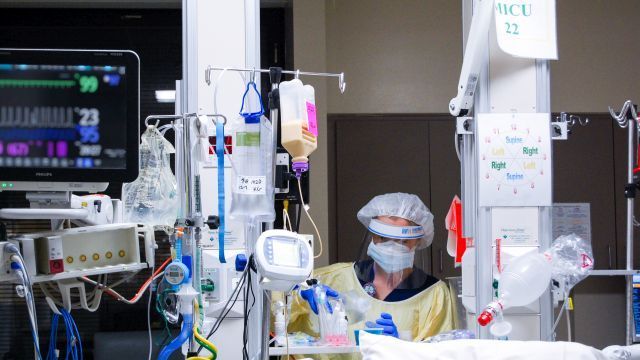
A federal team of health care workers is being sent to a southwest Alabama hospital seeing a surge in COVID-19 patients, the state health officer said Wednesday. State Health Officer Scott Harris said the U.S. Department of Health and Human Services is sending a task force team to Southeast Medical Center in Dothan. Sitting in the far southeast corner of the state, the hospital sees patients from Florida and Georgia. The hospital this month set a new pandemic high with 119 COVID-19 patients. Alabama is seeing a surge in COVID-19 cases that medical officials say is being fueled by low vaccination rates and the highly contagious delta variant. South Alabama hospitals have been particularly hard hit. The first team in the state was sent to South Baldwin Regional Medical Center in Foley. Similar teams have been sent to help in Louisiana and Mississippi. Between July 19 and Aug. 25, Alabama went from having 500 COVID-19 patients in state hospitals to 2,845. By comparison, the state had 3,087 patients in the hospital at the January peak of the pandemic. The state has more patients receiving intensive care across the state than there are designated intensive care beds in the state, according to the Alabama Hospital Association. While some hospitals have available ICU beds, other areas are over capacity and have converted other space to intensive care. Republished with the permission of the Associated Press.
17 centers throughout state offered over $92 million for COVID testing, treatment, and vaccinations
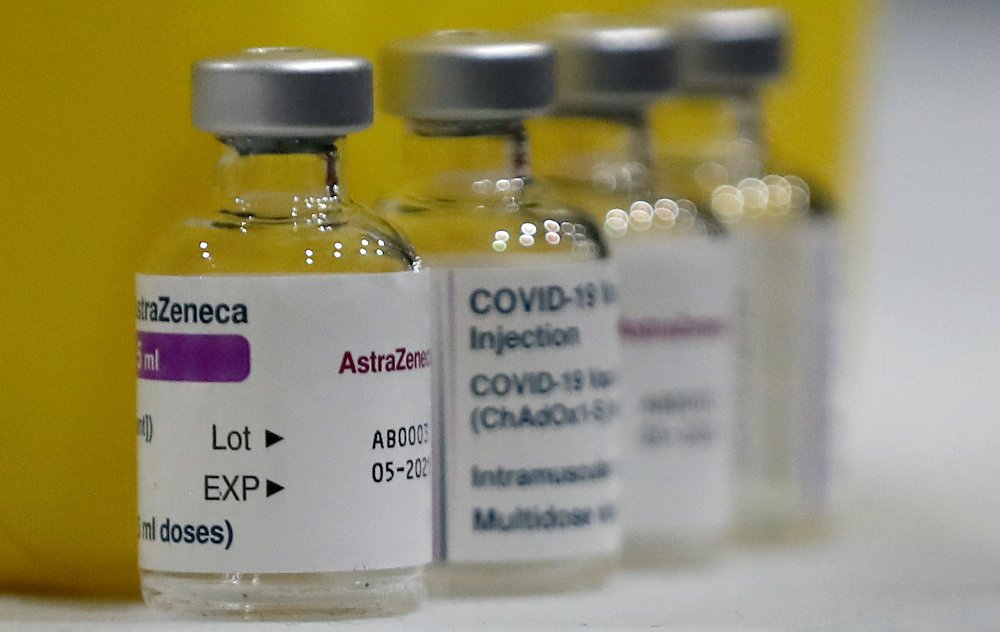
The U.S. Department of Health and Human Services (HHS) announced today funding from the American Rescue Plan for Covid-19 response. Seventeen community health centers in Alabama will receive $92,762,875 to support COVID-19 vaccinations and health services to vulnerable populations. The funding will be awarded in April by the Health Resources and Services Administration. According to the press release, health centers can use the funds to expand vaccinations, testing, and treatment for vulnerable populations. It can also be used to help provide health services to those at higher risk of covid-19, and help expand the operational capacity of health centers that are offering services during the pandemic. HHS Secretary Xavier Becerra stated, “Every American should have the security of knowing they have access to quality, affordable health care, especially as we face a pandemic that has exposed the disparities facing rural, minority, and lower-income communities. The Biden Administration is committed to getting help to those who need it most, and the communities hit hardest by COVID-19 will benefit from these critical investments.” The Health Resources and Services Administration (HRSA), an agency of the U.S. Department of Health and Human Services, is the primary federal agency for improving health care to people who are geographically isolated and economically or medically vulnerable. HRSA funded health centers deliver affordable health care to medically underserved communities and vulnerable populations. They serve 1 in 5 people living in rural communities, and 1 in 11 people nationwide. For more information on vaccine distribution in Alabama, visit the HRSA website.
Alabama community health centers receive $4M in critical opioid treatment grants

Community health centers across the state are receiving federal grants to support increased treatment and prevention for opioid and substance abuse. Sen. Richard Shelby made the announcement Thursday that 15 centers would receive a total of $4,038,000 in federal grant funding from the U.S. Department of Health and Human Services (HHS). “It is of the utmost importance that we work to fund the fight against the national opioid crisis,” said Shelby. “Nearly every county in Alabama is affected by this growing problem. These HHS grants will allow community health centers across the state to provide treatment to patients with opioid and substance abuse and support addiction prevention programs, helping our communities tackle this widespread epidemic.” These grants will impact community health centers in the following areas of the state: Bayou La Batre, Birmingham, Centreville, Gadsden, Huntsville, Mobile, Montgomery, Parrish, Selma, Scottsboro, Troy, and Tuscaloosa. On September 19, HHS awarded nearly $352 million to 1,232 community health centers across the nation, including the 15 in Alabama, through the Expanding Access to Quality Substance Use Disorder and Mental Health Services (SUD-MH) awards. The SUD-MH awards support health centers in implementing and advancing evidence-based strategies that best meet the substance use disorder and mental health needs of the populations they serve. The following 15 community health centers in Alabama will receive $4,038,000 in grant funding: Bayou La Batre Area Health Development Board, Inc., Bayou La Batre – $285,000 Christ Health Center, Inc., Birmingham – $285,000 Alabama Regional Medical Services, Birmingham – $285,000 Aletheia House, Inc., Birmingham – $201,750 Cahaba Medical Care Foundation, Centreville – $296,000 Quality of Life Services, Inc., Gadsden – $293,000 Central North Alabama Health, Huntsville – $285,000 Health Services, Inc., Montgomery – $285,000 Franklin Primary Health Center, Inc., Mobile – $285,000 Mobile County Health Department, Mobile – $285,000 Capstone Rural Health Center, Parrish – $287,250 Rural Health Medical Program, Inc., Selma – $285,000 Northeast Alabama Health Services, Inc., Scottsboro – $110,000 S.E. Alabama Rural Health Associates, Troy – $285,000 Whatley Health Services, Inc., Tuscaloosa – $285,000
Email Insights: Martha Roby confirms no immigrant detainees at Maxwell-Gunter
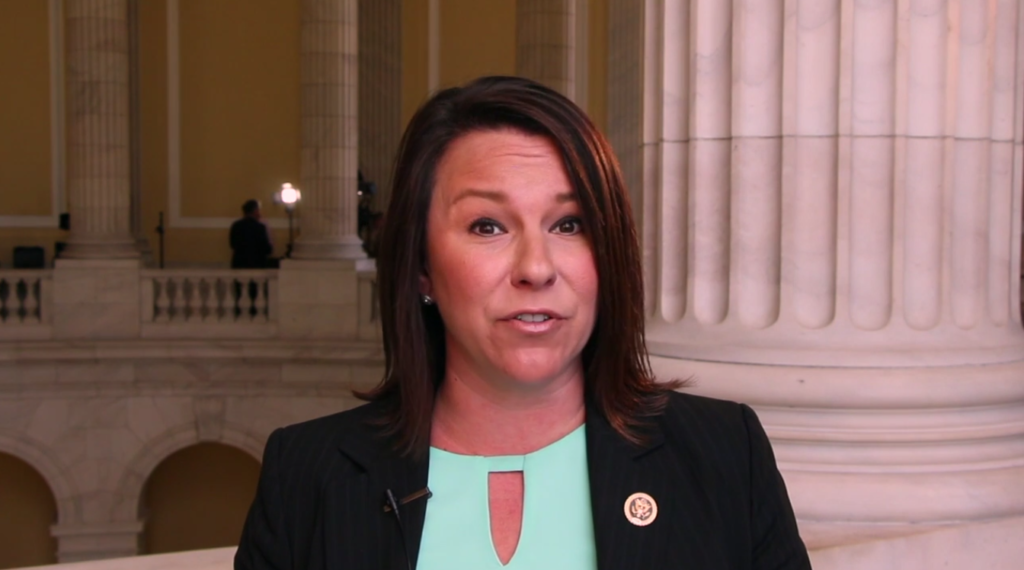
Alabama 2nd District U.S. Rep. Martha Roby confirmed in an email Thursday that no detained immigrant minors will be sent to Maxwell-Gunter Air Force Base in Montgomery or any other Alabama military installation. In January, Roby first voiced her concerns after an Obama administration plan to evaluate the feasibility of housing undocumented immigrant minors at Maxwell-Gunter Air Force Bace in Montgomery as they await deportation surfaced. Since that time, Roby had “unofficial” assurance that Maxwell-Gunter would not be used to house the detainees, but the U.S. Department of Health and Human Services (HHS) provided official notice Thursday that the base was removed from consideration. Watch Roby’s video remarks below: Read Roby’s full email below: WASHINGTON, D.C. – No detained immigrant minors will be sent to Maxwell-Gunter Air Force Base in Montgomery or any other Alabama military installation, U.S. Representative Martha Roby (R-Ala.) confirmed today. While Roby previously had unofficial assurance that Maxwell-Gunter would not be used to house the detainees, the Department of Health and Human Services (HHS) provided official notice today that the base was removed from consideration. “Maxwell-Gunter Air Force Base is no place to house hundreds of illegal immigrant minors,” Roby said. “We shut it down the first time and I’m glad we were able to shut it down again. “I appreciate the support and partnership of my colleagues in Alabama Congressional Delegation who worked alongside me against this ill-advised proposal.” Roby’s office was notified in January that Maxwell-Gunter was again being considered to house minors detained at the Mexican border while they await processing. This after Roby and her Alabama delegation colleagues had fought and shut down a similar proposal from Obama Administration in 2014. Roby immediately outlined her objections to the Secretaries of Defense, Homeland Security and HHS, explaining that the serious and sensitive missions at Maxwell-Gunter did not need to be disturbed by the housing and securing of hundreds of detainees. She also met personally with the Office of Refugee Resettlement to show why Gunter Annex was logistically unsuitable for this purpose, and then made the case to HHS Secretary Sylvia Burwell in an Appropriations Committee hearing. Roby said the problem at the border would continue so long as lax enforcement and broken invites more people to illegally cross the border. “We have to secure the border, first and foremost. We also need to have immigration policies that put America’s economic interests first and discourage people from entering the country illegally. Until we get serious about combatting illegal immigration, we will continue to see this problem at the border.” HHS officials also confirmed that naval air fields in Baldwin County, Ala. would also no longer be considered for detainee housing. The air fields were inexplicably added to the list for consideration earlier this year.
Alabama Senators Jeff Sessions, Richard Shelby slam Obama proposal to house illegal minors in Baldwin County
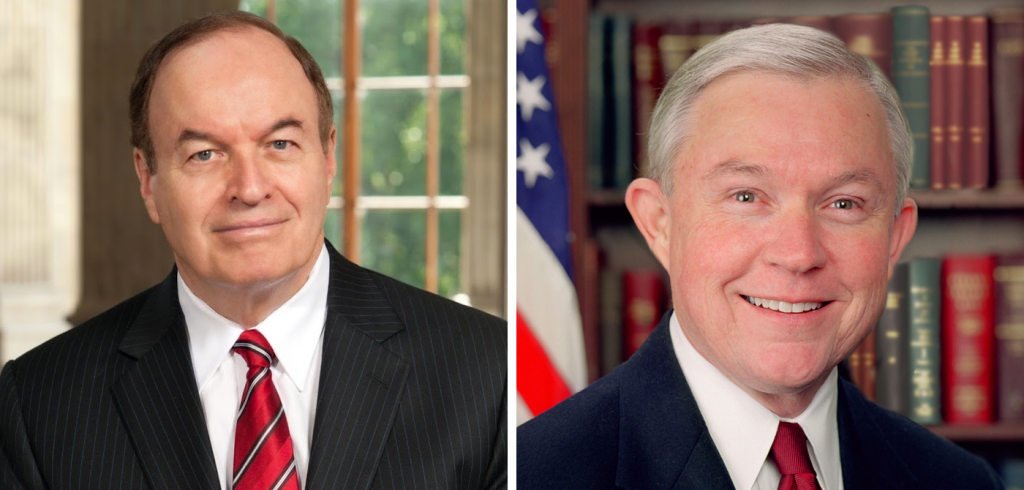
A flood of 38,566 illegal alien juveniles who have entered into the United States from Mexico have been apprehended through May — a 69 percent increase from 2015, according to U.S. Customs and Border Protection. The stat was quoted Wednesday by Alabama’s U.S. Senators Jeff Sessions and Richard Shelby in a joint letter to three senior federal officials, stating “only a small fraction have been removed from the United States.” The letter, sent to Secretary Jeh Johnson of the U.S. Department of Homeland Security, Secretary Sylvia Burwell of the U.S. Department of Health and Human Services, and Attorney General Loretta Lynch of the U.S. Justice Department, states the Senators’ opposition to the Obama administration’s proposal to use two outlying airfields at Naval Air Station Whiting Field in Baldwin County as a potential location to house purportedly unaccompanied illegal alien juveniles. It also expresses their concerns about the administration’s handling of the increasing number of illegal juveniles crossing our southern border. “Transporting some of these juveniles more than 900 miles away from our southern border to the state of Alabama, instead of expeditiously and humanely sending them back to their homes, will only make the situation worse,” the letter reads. “It rewards illegal conduct, and arguably renders the United States complicit in criminal conspiracies to violate our immigration laws.” To make matters worse, they said roughly 91 percent of the illegal youths are released to their family members, many of whom are also in the United States illegally. “According to the Government Accountability Office, between January 7, 2014, and April 17, 2015, ORR released illegal alien juveniles from its custody to a parent in 60 percent of all cases, an aunt or uncle in 13 percent, a sibling in 12 percent, an ‘other relative’ in 3 percent, a first cousin in 2 percent, and a grandparent in 1 percent of all cases. Thus, in roughly 91 percent of all cases, these juveniles are eventually released to the custody of a family member located in the United States,” said the letter. They continued, “However, this administration has failed to take any enforcement action against these family members — most of whom had some role to play in the juveniles’ illegal entry into the United States. And many of those family members are present in the United States unlawfully.” Both senators have been longtime critics of President Barack Obama‘s immigration policies “Strong leadership and a commitment to the faithful execution of the laws on the books would convey a clear message to the world that if you come to the United States illegally, you will be removed. Rather than improve the current situation, administration policies have only made the situation worse,” they added. Read the full text of their letter below: Dear Secretary Johnson, Secretary Burwell, and Attorney General Lynch: We write to express our opposition to the evaluation by the Office of Refugee Resettlement (ORR) of two outlying airfields at Naval Air Station Whiting Field as a potential location to house purportedly unaccompanied illegal alien juveniles, and to express our concerns about this Administration’s handling of the increasing number crossing our southern border. Just two years ago, President Obama sent a letter to Congress outlining his plans to handle the surge at our southern border. Two years later, it is clear that President Obama’s plans for handling the situation have failed. According to U.S. Customs and Border Protection, 38,566 illegal alien juveniles have been apprehended through May – a 69 percent increase over last year, and a number surpassed only by the record number apprehended in FY 2014. Since the beginning of FY 2014, 147,077 have been apprehended, yet only a small fraction have been removed from the United States. Transporting some of these juveniles more than 900 miles away from our southern border to the State of Alabama, instead of expeditiously and humanely sending them back to their homes, will only make the situation worse. It rewards illegal conduct, and arguably renders the United States complicit in criminal conspiracies to violate our immigration laws. According to the Government Accountability Office, between January 7, 2014, and April 17, 2015, ORR released illegal alien juveniles from its custody to a parent in 60 percent of all cases, an aunt or uncle in 13 percent, a sibling in 12 percent, an “other relative” in 3 percent, a first cousin in 2 percent, and a grandparent in 1 percent of all cases. Thus, in roughly 91 percent of all cases, these juveniles are eventually released to the custody of a family member located in the United States. However, this Administration has failed to take any enforcement action against these family members – most of whom had some role to play in the juveniles’ illegal entry into the United States. And many of those family members are present in the United States unlawfully. The Administration continues to prevent the use of any of a number of commonsense tools to protect the integrity of our immigration system and the sovereignty of this nation. Moreover, the need for additional housing facilities is far from clear. Indeed, there seems to be some confusion on the part of the Administration as to whom the special processing procedures in the William Wilberforce Trafficking Victims Protection Reauthorization Act of 2008 (TVPRA) apply. Indeed, under a plain reading of the Act, many of the illegal alien juveniles apprehended could be expeditiously and humanely sent back to their homes – because they do not meet the definition of an “unaccompanied alien child.” Pursuant to the TVPRA, an “unaccompanied alien child” who is apprehended by the Department of Homeland Security must be transferred to the custody of the Department of Health and Human Services, which is then responsible for their care and custody. However, the TVPRA defines an “unaccompanied alien child” by cross-referencing section 462(g) of the Homeland Security Act of 2002 (6 U.S.C. § 279(g)), which defines an “unaccompanied alien child” as an individual who has no lawful immigration status in the United States, who is under 18, and with respect to whom “there is no parent or legal guardian in the


